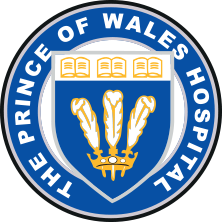What will happen while you are in the Emergency Department
Who will look after you
Once inside the emergency department you will be looked after by nursing staff and doctors. You may need to wait if you need to have an x-ray or other tests, or require a specialist to see you. Your doctor will then decide if you should be admitted to hospital for further treatment or if you can return home.
What to bring
If you need to come to the emergency department please bring:
- A list of all the medicines you are currently taking. If you do not have a list simply bring your medicines with you.
- The name and phone number of your usual general practitioner (GP) or medical centre.
- Your Medicare card or passport (if you are not an Australian citizen).
- A list of your allergies.
- Your Medalert bracelet (if you have one).
What to Expect
When you arrive
Every person is first seen by a specialist triage nurse, who has a responsibility for allocating how urgent your need is. The most urgent patients are always seen first, so the time you may wait to see a doctor will vary according to how urgent your medical needs are. Some patients may be seen before you even though you have been waiting a longer period of time.
If you enter through our front door you should go to the reception desk where one of the clerical staff will register your name and personal details. They will:
- ask for your Medicare card or passport (if you are not a citizen of Australia)
- record you contact details
- ask for the contact details of your usual general practitioner (GP) or medical centre
- record your work contact details if it is a work-related illness or injury
Clerical staff are responsible for registering essential information regarding your identity. They also explain if there are will be any costs you will need to pay.
Triage
The triage nurse, will find out more about your injuries or illness and prioritise how urgently you need treatment. By doing this we can make sure that the sickest patients are treated by doctors first. This triage system exists in all public hospitals throughout Australia and uses a uniform set of criteria to make an assessment of your needs.
While you are waiting
If your condition gets worse you should tell the Triage Nurse immediately.
Do not eat or drink
Please check with the nurse or doctor before you have anything to eat or drink while you are waiting.
Pain relief
If you are in pain tell the Triage Nurse who may be able to offer some pain relief.
Do you need an interpreter?
Please let us know if you need an interpreter.
Going home
A doctor or nurse will let you know when you can go home. Before you leave you should make sure that you:
- Understand your treatment including what medicines to take and how to take them
- Know when to see a doctor again
- Ask for a medical certificate and/or letter for your doctor if you need one
Contact your General Practitioner
You should let your local doctor (GP) know within a couple of days that you have visited the emergency department. Results from any tests conducted in the Emergency Department will be forwarded to them. Please take any letters given to you by the hospital when you visit your GP. If for any reason you prefer us not to forward any information to your GP please let your treating doctor know.
Research, Training and Education
We are a teaching hospital and student doctors or nurses may be involved and supervised by senior staff during your visit. You have the right to say no. If you do so, this will no impact in any way on the services we will provide.
